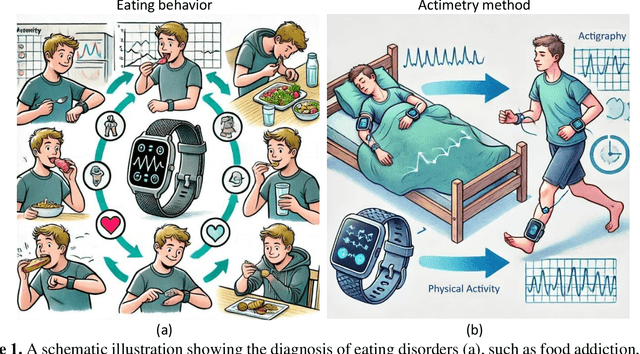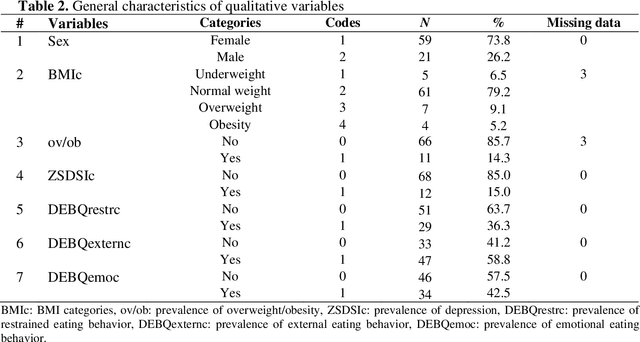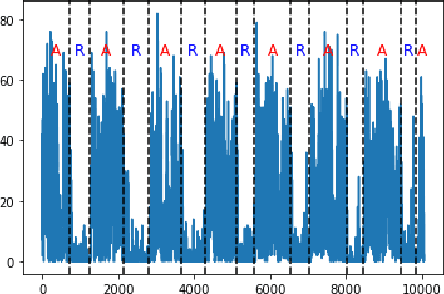Mikhail Borisenkov
Objective Features Extracted from Motor Activity Time Series for Food Addiction Analysis Using Machine Learning
Aug 31, 2024



Abstract:This study investigates machine learning algorithms to identify objective features for diagnosing food addiction (FA) and assessing confirmed symptoms (SC). Data were collected from 81 participants (mean age: 21.5 years, range: 18-61 years, women: 77.8%) whose FA and SC were measured using the Yale Food Addiction Scale (YFAS). Participants provided demographic and anthropometric data, completed the YFAS, the Zung Self-Rating Depression Scale, and the Dutch Eating Behavior Questionnaire, and wore an actimeter on the non-dominant wrist for a week to record motor activity. Analysis of the actimetric data identified significant statistical and entropy-based features that accurately predicted FA and SC using ML. The Matthews correlation coefficient (MCC) was the primary metric. Activity-related features were more effective for FA prediction (MCC=0.88) than rest-related features (MCC=0.68). For SC, activity segments yielded MCC=0.47, rest segments MCC=0.38, and their combination MCC=0.51. Significant correlations were also found between actimetric features related to FA, emotional, and restrained eating behaviors, supporting the model's validity. Our results support the concept of a human bionic suite composed of IoT devices and ML sensors, which implements health digital assistance with real-time monitoring and analysis of physiological indicators related to FA and SC.
 Add to Chrome
Add to Chrome Add to Firefox
Add to Firefox Add to Edge
Add to Edge